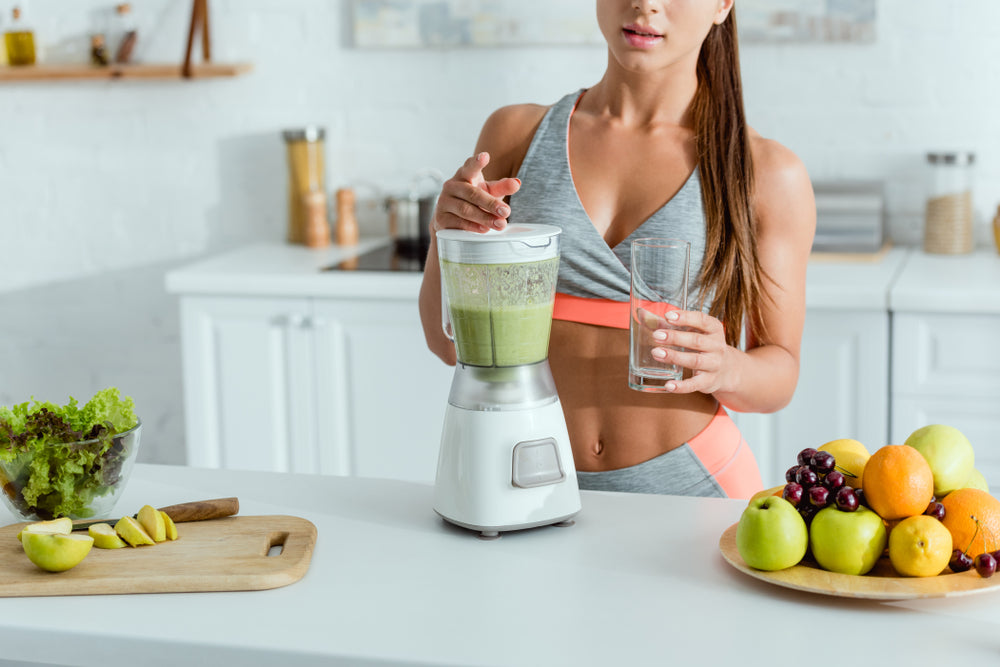6 Healthiest Fruits to Keep You Happy & Healthy

Fruit may taste like dessert, but it’s a crucial part of a healthy diet. Even the healthiest fruits are best in moderation, but some do rank higher than others when it comes to health benefits. So what is the healthiest fruit? Read on to find out what we agree is the healthiest fruit, plus five others that add to a healthy diet.
Healthiest Fruits to Incorporate in Your Meals
The healthiest fruits combine multiple health benefits in a single serving. We’re focusing on the most nutritious fruits which have high levels of antioxidants, lots of vitamins, plenty of fiber, and the lowest amounts of sugar.
While the healthiest fruits are fresh, consuming frozen, dried, or even canned foods can still be nutritious as part of a balanced diet.
Most healthy fruits are low in calories and lack the sodium and fat of other snacks. Fruit is also cholesterol-free, and according to the USDA, contains tons of essential nutrients we often overlook in our daily diets. Here are the six healthiest fruits to eat and add to your meal planning!
Strawberries
What is the healthiest fruit to eat, overall? A variety of berries compete for the top spot.
Strawberries are low on the glycemic index—meaning they don’t spike blood sugar levels—and they’re a low-calorie addition to your diet. It might be challenging to find strawberries in the off-season, but when you can find them, you can reap the benefits of antioxidants and other heart-healthy nutrients.
Strawberries are mostly water, which helps keep the calorie count low. Other nutrients like manganese and folate are present in strawberries, too, giving them a healthful profile that beats out most other fruits. Combine them with pomegranate seeds and raspberries in our Triple Berry Antioxidant Detox Water to enjoy the flavor and antioxidant properties.

A cup of whole strawberries contains:
- 47 calories
- 220 mg potassium
- 11 g carbohydrate
- 2.9 g dietary fiber
- 7 g sugar
- 1 g protein
- 141% DV Vitamin C
- 5% DV Vitamin B-6
- 4% DV Magnesium
Blueberries
Strawberries aren’t the only berry with an excellent reputation: other berries like blueberries, raspberries, and even elderberries offer up phytonutrients that beat nearly every other fruit. Blueberries have tons of vitamin C, vitamin K, manganese, and an array of other nutrients.
Blueberries are low on the glycemic index, too, and have anti-inflammatory properties. Combined with crisp sliced apples in our Apple Nachos, blueberries make the perfect topping for a naturally sweet treat. Plus, apples have their own slew of health benefits.

A cup of blueberries contains:
- 85 calories
- 114 mg potassium
- 21 g carbohydrate
- 3.6 g dietary fiber
- 15 g sugar
- 1.1 g protein
- 24% DV Vitamin C
- 5% DV Vitamin B-6
Raspberries
Strawberries and blueberries deliver a host of dietary benefits, but we can’t overlook raspberries! The tiny fruit has a ton of fiber per serving, which is ideal for helping heal gut issues. If you struggle with leaky gut or other digestive tract problems, you already know the importance of consuming lots of fiber in your diet.
Raspberries are also deliciously low in sugar, ideal for a low glycemic diet.

A cup of raspberries contains:
- 65 calories
- 186 mg potassium
- 15 g carbohydrate
- 8 g dietary fiber
- 5 g sugar
- 1.5 g protein
- 53% DV Vitamin C
- 5% DV Vitamin B-6
- 6% DV Magnesium
Cherries
Cherries are delightfully tart and sweet enough to serve as a standalone snack. Not only are they relatively low in sugar, but they also offer lots of potassium and antioxidants. When asked what are the healthiest fruits, we’d have to say cherries top the list.
Even canned or dried cherries are a great nutritional choice if you choose options without added sugar.

A cup of fresh, pitted cherries contains:
- 77 calories
- 268 mg potassium
- 19 g carbohydrate
- 2.5 g dietary fiber
- 13 g sugar
- 1.6 g protein
- 39% DV Vitamin A
- 25% DV Vitamin C
Apples
Apples have a reputation for being the healthiest fruit to eat—keeping the doctor away and all—and there’s a reason! Tart apples, especially, pack plenty of phytonutrients and antioxidants. But the health benefits of all apples span enhancing cardiovascular health, protecting against type 2 diabetes, and preventing certain types of cancers.
Plus, don’t forget the peel—eating an entire apple adds lots of healthy fiber to your diet. Even apple cider is healthy (without added sugar) because it has a lot of flavonoids, which have antioxidant and anti-inflammatory properties.
Want to rejuvenate your daily apple snack? Try a Chopped Apple Salad for a new spin on one of the most healthy fruits you can eat.

A medium (about 3-inch diameter) apple contains:
- 95 calories
- 195 mg potassium
- 25 g carbohydrate
- 4.4 g dietary fiber
- 19 g sugar
- .5 g protein
- 14% DV Vitamin C
- 5% DV Vitamin B-6
Apricots
What are the healthiest fruit options when you can’t buy fresh? Apricots top the list. Whether you like them fresh or dried, apricots offer plenty of vitamin A, vitamin C, and fiber. Vitamin A is vital for immune and reproductive health, plus caring for your vision. It also contributes to organ health.
Dried apricots deliver higher amounts of iron, magnesium, and calcium than fresh apricots, so they’re an ideal snack, too. When shopping for dried apricots, be sure to choose organic options without sulfur dioxide, a preservative which makes the apricots bright orange.

A cup of fresh apricots contains:
- 79 calories
- 427 mg potassium
- 18 g carbohydrate
- 3.3 g fiber
- 15 g sugar
- 2.3 g protein
- 63% DV Vitamin A
- 27% DV Vitamin C
- 5% DV Vitamin B-6
Healthy Fruits as Part of a Healthy Diet
These are just a few of the healthiest fruits you can eat. For even more nutrition tips, check out our health and wellness posts. To see how you can eat these healthy fruits daily, explore our favorite recipes for smoothies, snacks, meals, and desserts.

Adi Arezzini
Teami Blends - Co-Founder + CEO
Certified Nutrition Health Coach
Subscribe to our Newsletter
Subscribe to our newsletter and get 10% off your first purchase
 Instagram
Instagram



